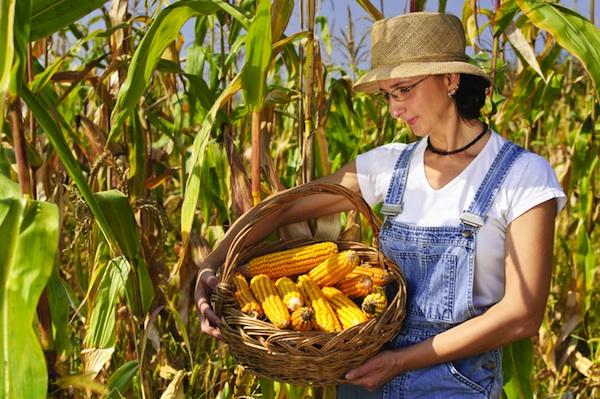
Growing Appalachia, and a Better Food System for America (Op-Ed)

Get the world’s most fascinating discoveries delivered straight to your inbox.
You are now subscribed
Your newsletter sign-up was successful
Want to add more newsletters?

Delivered Daily
Daily Newsletter
Sign up for the latest discoveries, groundbreaking research and fascinating breakthroughs that impact you and the wider world direct to your inbox.

Once a week
Life's Little Mysteries
Feed your curiosity with an exclusive mystery every week, solved with science and delivered direct to your inbox before it's seen anywhere else.

Once a week
How It Works
Sign up to our free science & technology newsletter for your weekly fix of fascinating articles, quick quizzes, amazing images, and more

Delivered daily
Space.com Newsletter
Breaking space news, the latest updates on rocket launches, skywatching events and more!

Once a month
Watch This Space
Sign up to our monthly entertainment newsletter to keep up with all our coverage of the latest sci-fi and space movies, tv shows, games and books.

Once a week
Night Sky This Week
Discover this week's must-see night sky events, moon phases, and stunning astrophotos. Sign up for our skywatching newsletter and explore the universe with us!
Join the club
Get full access to premium articles, exclusive features and a growing list of member rewards.
John Paul DeJoria co-founded Paul Mitchell in 1980 and helped turn it into the world's largest privately owned salon haircare company. He went on to co-found the Patrón Spirits Company, John Paul Pet & JP Selects. DeJoria is also the founder and chair of JP's Peace, Love & Happiness Foundation. This article is adapted from an article for the Skoll World Forum. DeJoria contributed this article to LiveScience's Expert Voices: Op-Ed & Insights.
Growing up, we didn't have much in a household made up of my mom, my brother and me. Even though we lived in the city, in Los Angeles, we always had a small garden in the back where I helped pick peas, string beans, tomatoes and green onions. No matter how small the size of the garden, it was a family event planting, growing and harvesting on our own. My brother and I were city kids who learned to appreciate fresh food. To this day, I rarely eat junk food because it simply wasn't a part of my upbringing.
More than 50 million Americans live in food insecure households. When I founded Grow Appalachia in 2009, in partnership with Berea College, I was hoping to address the problem of hunger in America, but realized that the issue wasn't simply a lack of food. The way people relate to food — the way they purchase it, prepare it and consume it — is the real problem.
The current food stamp system keeps people dependent on cheap, low-nutrient food. Hunger in Appalachia has been the focus of government intervention for years — the very focus of Lyndon B. Johnson's anti-poverty initiative in the 1960s — and people today still are unable to buy their own food. There has to be a better way for Americans to have access to healthy food.
Education is the biggest challenge for the people we're working with in Appalachia, and I believe it's the biggest challenge facing the food insecure across America. Both hunger and obesity exist side by side throughout Appalachia, in just about every county. Today's hunger is often perpetuated by low-nutrient, cheap processed food that ultimately results in raised healthcare costs that only contribute to our nation's overall deficit. Our broken system keeps people dependent on unhealthy — sometimes scarce — food, when we can instead help people to depend on themselves.
So, how do you begin to teach people to take control? There is a real loss of institutional and familial knowledge in Appalachia that makes it hard to teach people to garden. For generations, people throughout the hollers worked their own land and grew their own food. That tradition has been lost as people even in rural areas depend on fast food, food banks and gas stations for the majority of the food for their families.
The availability of unhealthy, cheap food destabilized the local food system. The relationship with the land and proud tradition of food has all but disappeared. When in the field with one of our Grow Appalachia gardeners, my foundation director ate a bean right off their plant and congratulated the gardener on the flavor — the woman was surprised to see the bean eaten fresh and said she never knew you could eat a vegetable right off the plant.
Get the world’s most fascinating discoveries delivered straight to your inbox.
Grow Appalachia is changing the way people throughout rural Appalachia relate to food. In the past three years, thousands of program participants through 25 partner sites in five states have grown more than 574,000 pounds of food. We work with existing social structures — 100 year-old missions, a domestic violence shelter, schools, a veteran's organization — and provide the basic tools to help people grow their own food and become their own solution to food insecurity.
These trusted partners provide canning classes, gardening workshops and help build high tunnels for more efficient production. The main goal is to get people as close to their food source, and in charge of their own food systems, for as long as possible. Introducing more food to the area solves the basic problem of a supply of high-quality, fresh food, but it's not enough to just have more food. People have to be invested in growing their own food, saving seeds and growing organic to keep soil healthy.
Individual households have saved about $1,000 in grocery bills in a growing season. A one-acre garden at Jackson County Detention center saved $5,000 in food costs in one season, and introduced better food and work experiences to inmates. In the Coffey family garden in Jackson, Ky., five generations plant and harvest together, growing together, sharing old techniques as well as new ones. Money is being saved, families are sharing and teaching with other families and people are feeding themselves.
A huge part of the problem with hunger is not just getting the right food to the poor, but encouraging them to be a part of their own solution. Given the right tools, they have started businesses and sold canned salsa and honey and squash and eggs at farmer's markets. They are not only feeding themselves but also helping to nourish their communities and grow their local economies.
We believe the people in Appalachia, the people of America, can be the answer to food insecurity. We see it happen every day. We hope these families will no longer have a need for food stamps. Grow Appalachia is a two-year program that gives people the tools they need to grow their own food for a lifetime.
People often ask why I do what I do or how they can help be a part of it. I answer both questions by saying, "success unshared is failure." All Americans can do something with their time or money to help make their community, state, country or world a better place.
If you have resources, shop at a farmer's market and be a patron to a local family farm, or say no to eating endangered seafood. If you can, start a small garden in your backyard. Help your neighbor start a garden. We can help protect our ecology and waterways and help people to have access to fresh food.
It's all connected. We are all connected.
The DeJoria family is committed to contributing to a sustainable planet through investing in people, protecting animals and conserving the environment. This article originally appeared as "Growing Appalachia: A Better Food System for America" on the Skoll World Forum on Social Entrepreneurship, a premier international platform for accelerating entrepreneurial approaches and innovative solutions to the world's most pressing social issues. The views expressed are those of the author and do not necessarily reflect the views of the publisher. This version of the article was originally published on LiveScience.
 Live Science Plus
Live Science Plus











